Robust answers can ensure new industrial capital flows
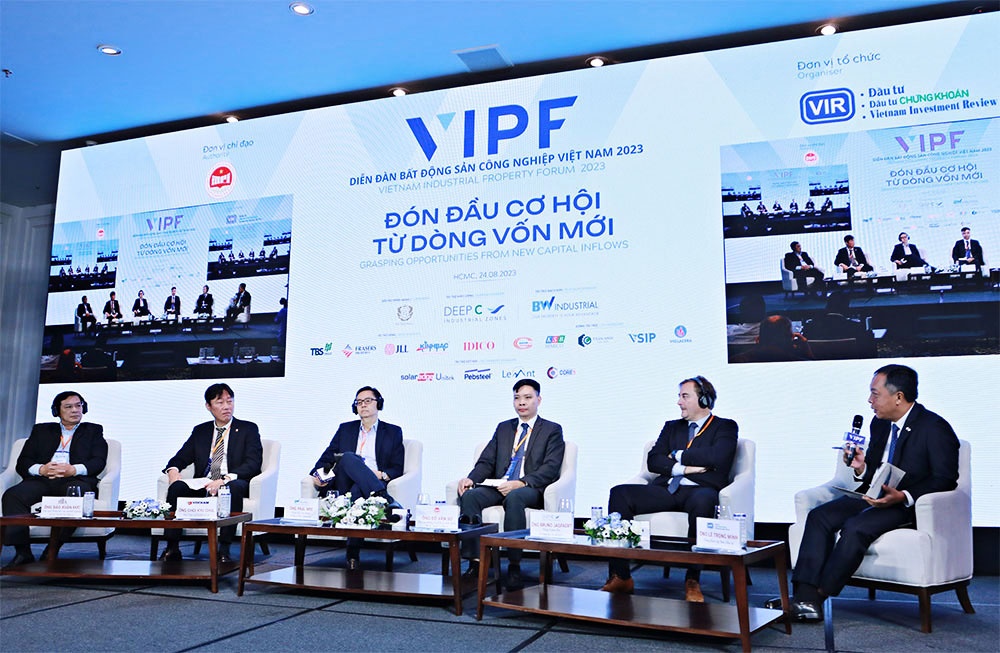 |
| Vietnam Industrial Property Forum |
Last week’s Vietnam Industrial Property Forum featured a plethora of discussions on a range of related real estate issues. At the event in Ho Chi Minh City, leading experts from regulatory authorities, as well as the business community, discussed the future popularity of industrial real estate, localities that will stand out, existing problems that need to be solved to open capital flows, and new legal frameworks to encourage major groups to Vietnam.
Deputy Minister of Planning and Investment Tran Quoc Phuong acknowledged at the forum that the scale and trend of global investment flows have changed drastically due to the influence of geopolitical factors, as well as current trends in the and economic fluctuations of the major economies.
“Despite the rapid, complicated, and unpredictable developments in the world and regional economic context, Vietnam remains a bright spot on the map of attracting foreign direct investment (FDI) with many advantages,” Phuong said.
Specifically, Vietnam continues to maintain macroeconomic stability, controllable inflation, and achieve positive growth results. In 2022, GDP growth reached 8.02 per cent, import-export turnover reached over $732 billion, up 9.5 per cent, the trade surplus was over $11 billion, the scale of the economy reached $409 billion, and per capita income was above $4,100, according to figures from the General Statistics Office.
The business investment environment continues to improve. In 2022, realised FDI reached about $22.4 billion, the highest in the past five years. Particularly in the first seven months of 2023, newly registered foreign capital and the number of newly registered foreign-invested projects continued to increase by 38.6 per cent and 75.5 per cent over the same period, respectively.
Furthermore, Vietnam is ranked in the group of 20 economies with the largest commercial scale in the world with the presence of investors from 143 countries and territories, with nearly 38,000 projects and total registered capital of more than $452 billion.
From the perspective of businesses, Bruno Jaspeart, CEO of DEEP C Industrial Zones, said that the capital flow from foreign investment in Vietnam is currently strong.
“FDI into Vietnam continues to grow steadily, with a growth rate of 6-7 per cent of total registered capital over the same period last year, with the largest concentration of 44 per cent in the manufacturing and processing industries,” he said.
“Indeed, we are seeing a steady increase in the number of investors over the years and if it continues like this, there will be no limit to taking advantage of new capital inflows,” he said.
Paul Wee, CFO of BW Industrial Development, commented that Vietnam needs additional credit programmes if it wants to entice more international investors.
“When a country has credit schemes and mechanisms to promote business development, it will certainly gain more investors,” Wee said.
Many large enterprises and corporations have moved out of China recently, he added. Among their chosen destinations, India, Indonesia, and Thailand currently stand out as some of the most attractive options. Each investor will have their own criteria when choosing where to invest, according to Wee.
Investing is taking place fiercely, especially among countries in the region that are focusing on promoting investment attraction. As a result, Vietnam has also offered up guidelines and policies to improve the efficiency of attracting foreign investment in accordance with the domestic as well as international context.
In particular, the foreign investment cooperation strategy for 2021-2030 has set a number of specific goals, such as increasing by half the number of multinational corporations in the group of 500 largest corporations in the world; and improving the ratio of registered investment to more than 70 per cent in 2021-2025 and 75 per cent over 2026-2030.
In particular, by 2030, Vietnam wants to be in the top three countries in ASEAN and top 60 worldwide in the World Bank’s business environment ranking.
“In order to achieve the above goals, it is necessary to promote the development of industrial zones (IZs),” Deputy Minister Phuong said.
Le Thanh Quan, general director of the Ministry of Planning anđ Investment’s Department of Economic Zone Management, explained that Vietnam needs a specific strategy, not only attracting funding but also expanding the criteria for cooperation, to offer an appropriate form of investment.
“New capital flows to Vietnam will have higher requirements than those of many years ago to develop IZs with new trends of high technologies and environmentally friendly fields,” said Quan.
What is more, although Vietnam has an abundant labour force, there is still a shortage of human resources in some high-tech industries. To solve these challenges, Quan said that when welcoming a new wave of investment in IZs, it is necessary to prepare carefully with specific strategies.
In 2022, the government issued Decree No.35/2022/ND-CP stipulating the management of industrial areas, including regulations on the construction of specialised parks, high-tech parks, and eco-IZs.
Industrial property developers, according to Quan, should carry out insightful research and preparation to meet all the requirements of incoming tenants so that they can offer the most suitable solutions.
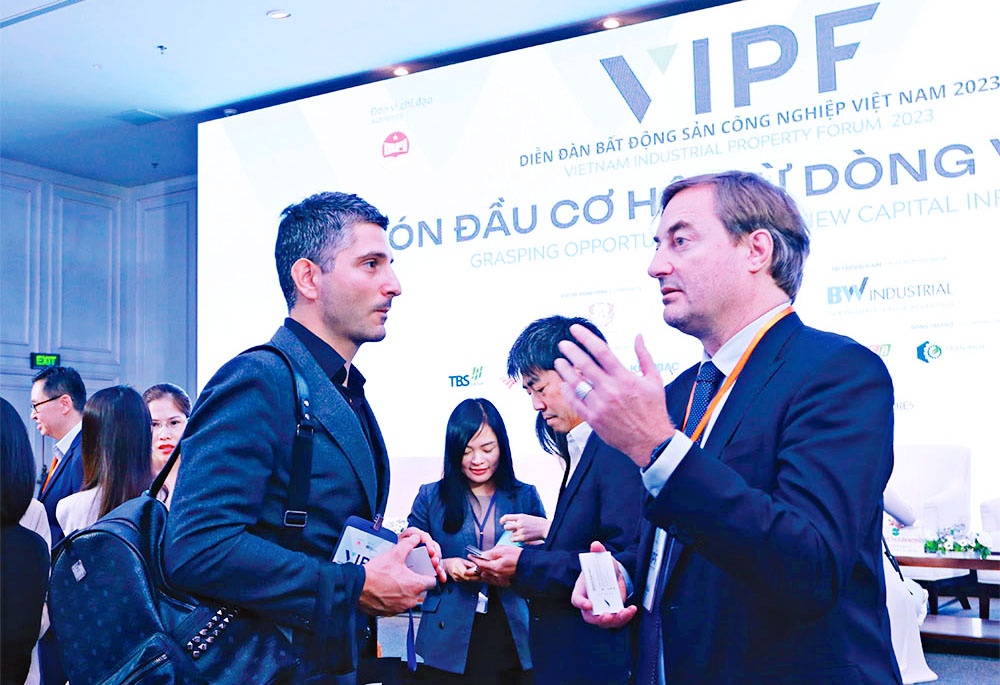 |
| The forum last week laid a spotlight on the goals Vietnam wants to achieve, and how to reach them, photo Le Toan |
Choi Kyu Chul - Vice chairman Korean Chamber of Commerce Central and South Vietnam
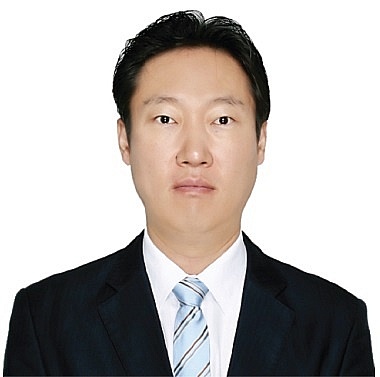 |
Over $16 billion of foreign investment capital was registered in Vietnam in the first seven months of 2023, of which South Korea is the second-largest country in terms of total registered capital.
Since Korea’s currency has fallen and the slow recovery of the US and global economies, we will have to wait another year before new large-scale capital comes to Vietnam.
However, what we all agree is that Vietnam is still attractive and previously frozen capital flows are expected to move significantly.
Currently, there are many big Korean investors and many financial institutions. Through the Vietnam-Korea Business Forum, and meetings between the Vietnamese government and businesses, most major South Korean investors confirmed that they would continue to expand the scale of production and business.
However, now countries are likely to take capital hedging measures similar to the US, that is, dividing it to other countries.
Ton Thi Nhat Giang - Vice president KN Holdings
 |
We see the opportunity and potential in terms of IP development. However, the big challenge for industrial real estate developers and their tenants is the development and installation of renewable energy. In particular, the issue of renewable energy development has not been consistent.
A typical example is that recently, the government has issued Power Development Plan VIII, but the regulations for the development of power sources are not apparent.
In addition, normally, industrial real estate developers expect to be allowed to directly sign the power purchase agreement with renewable energy developers. However, the current policy has yet to encourage this work.
Meanwhile, the demand for installing rooftop solar panels for tenants is big to meet the stricter requirements on low carbon emissions of international partners in the context the European Commission adopted the rules governing the implementation of the Carbon Border Adjustment Mechanism.
Furthermore, industrial real estate developers expect synchronisation in policies from the state to encourage them to develop social housing projects in IPs to improve the living standards.
Tom Over - Director, Logistics & Industrial for Asia-Pacific, JLL
 |
Around one-fifth of businesses planning to relocate from China chose Southeast Asia as their most preferred destination, and this is demonstrated by the shift of manufacturing foreign investment from China to regional countries over the past decade.
Our latest report shows that since 2006, 20 per cent of projects accounts for 80 per cent of the total foreign investment in Vietnam, showing the important role of such capital from large investors. Thus, Vietnam should prepare available infrastructure.
Vietnam has a total industrial park (IP) land of 36,400 hectares, 96 per cent of which are owned facilities, 2 per cent of land is ready to build the factory, and 2 per cent is ready to build the warehouse. The primary industrial product is a facility owned by a manufacturer which bought land from an IP developer.
Obviously, land price and availability are key drivers. If you’re a big manufacturer with over 50 ha requirement, it’s very difficult to find readily available land in the market to execute your business plan.
Investors can study the emerging hotspots, where the land hiring land is not too high, such as Nghe An, and Bac Giang for their business plans. In reality, five and seven years ago, foreign investors just paid attention to land plots in Ho Chi Minh City and Hanoi, but now, their attention is driven to these emerging localities.
There needs to be flexibility in ready-built warehouse and factory land, suitable land cost and available labour force, and sustainability must also be ensured.
Duong Thi Xuan Nuong - Deputy director, Dong Nai Industrial Zones Management Authority
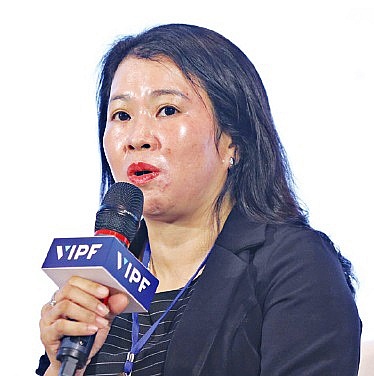 |
Dong Nai was known as the leading province in developing IPs and attracting foreign investors to them. However, it is honest to admit that the investment attraction has levelled off since 2020. The reason is lack of land. The province has a total of 32 IPs which were taken into operation with the fulfilled occupation is 85 per cent. The remaining modest land is not enough to call for large investors.
The province eyes building eight more IPs, which cover 8,200 ha, to offset the current lack of available industrial areas. In July, Long Duc 3 was approved for investment planning. The province is eager to complete the procedures for the remaining seven IPs to submit to the government for approval of planning. However, in reality, these new IPs are facing problems related to legal procedures, land processing, evaluation, and others. The province has urged relevant authorities to work on handling these issues.
Having additional large-scale land funds in collaboration with the available advantages such as convenient geographical position and completed infrastructure will be the momentum to attract investment.
Einor Alter - General manager Southeast Asia, SolarEdge
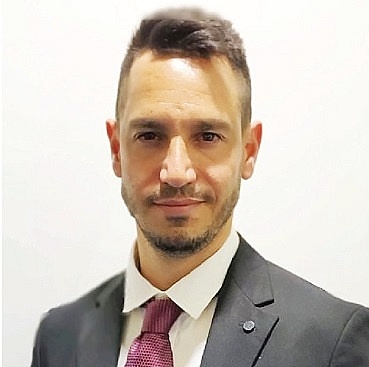 |
Photovoltaic (PV) systems, like any long-term investment, require continuous monitoring and management to unlock their maximum potential.
While traditional inverters offer limited information such as string-level or system-level monitoring, SolarEdge understands the importance of advanced PV monitoring and asset management and empowers systems owners and personnel to scale their operations through real-time data-driven insights, which is why SolarEdge’s monitoring platform is offered free to the entire system lifetime.
Large industrial parks, covering significant space and hosting a variety of operations and industrial activities across multiple industries, can benefit from real-time view of an entire fleet from a single, easy-to use platform.
Connecting a power optimiser to each module enables tracking, managing, and optimising the performance of multiple SolarEdge systems with smart tools which let you access specific needed data and receive pinpointed and automatic alerts for immediate fault detection, accurate maintenance, and rapid response. This leads to fewer trips to site, less time spent on site, and higher system uptime.
As PV systems become more widespread, more countries are implementing safety regulations and are making safety a priority. The SolarEdge safety suite not only meets the most rigorous international standards but also surpasses prevailing industry mandates, presenting a comprehensive approach to solar safety encompassing prevention, detection, and mitigation.
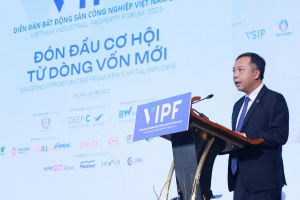 | Vietnam Industrial Property Forum 2023 is underway On the morning of August 24, VIR is holding the Vietnam Industrial Property Forum 2023 in Ho Chi Minh City, attracting the participation of experts, investors, and policymakers. |
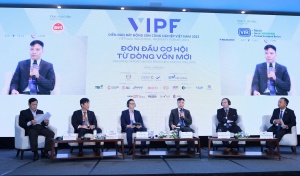 | Experts discuss new wave of foreign investment into Vietnam Experts shed light on a new wave of foreign investment into Vietnam, presenting opportunities for the industrial property segment. |
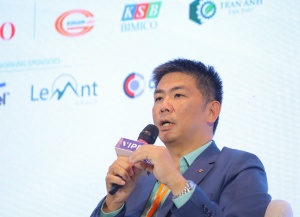 | Vietnam's industrial property needs to keep up with new investment wave As a new wave of foreign funds flows into Vietnam, the nation's industrial property segment needs to adapt to satisfy the demand. |
What the stars mean:
★ Poor ★ ★ Promising ★★★ Good ★★★★ Very good ★★★★★ Exceptional
 Tag:
Tag:
Related Contents
Latest News
More News
- Construction firms poised for growth on public investment and capital market support (February 11, 2026 | 11:38)
- Mitsubishi acquires Thuan An 1 residential development from PDR (February 09, 2026 | 08:00)
- Frasers Property and GELEX Infrastructure propose new joint venture (February 07, 2026 | 15:00)
- Sun Group led consortium selected as investor for new urban area (February 06, 2026 | 15:20)
- Vietnam breaks into Top 10 countries and regions for LEED outside the US (February 05, 2026 | 17:56)
- Fairmont opens first Vietnam property in Hanoi (February 04, 2026 | 16:09)
- Real estate investment trusts pivotal for long-term success (February 02, 2026 | 11:09)
- Dong Nai experiences shifting expectations and new industrial cycle (January 28, 2026 | 09:00)
- An Phat 5 Industrial Park targets ESG-driven investors in Hai Phong (January 26, 2026 | 08:30)
- Decree opens incentives for green urban development (January 24, 2026 | 11:18)






















 Mobile Version
Mobile Version